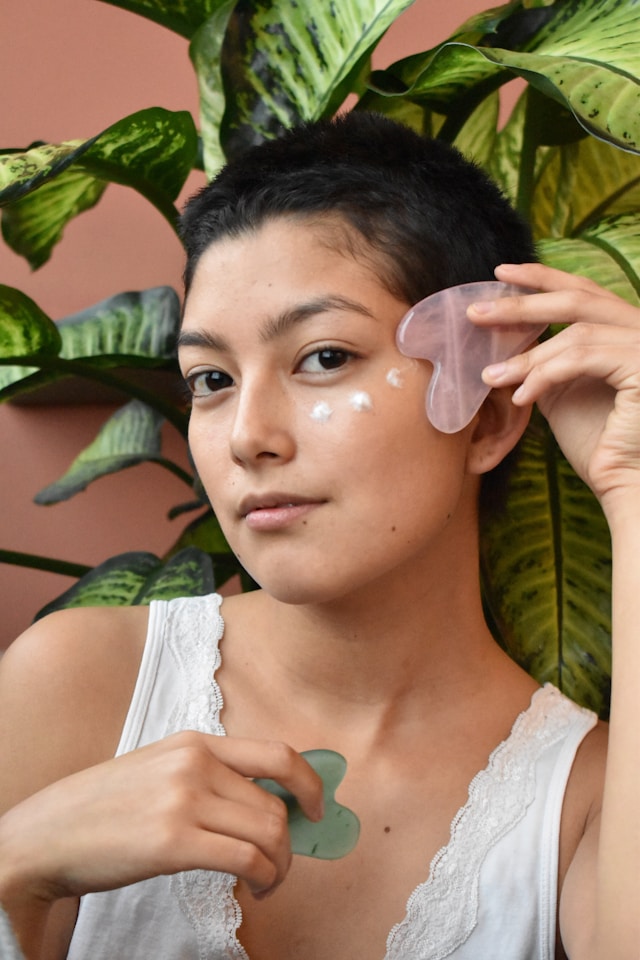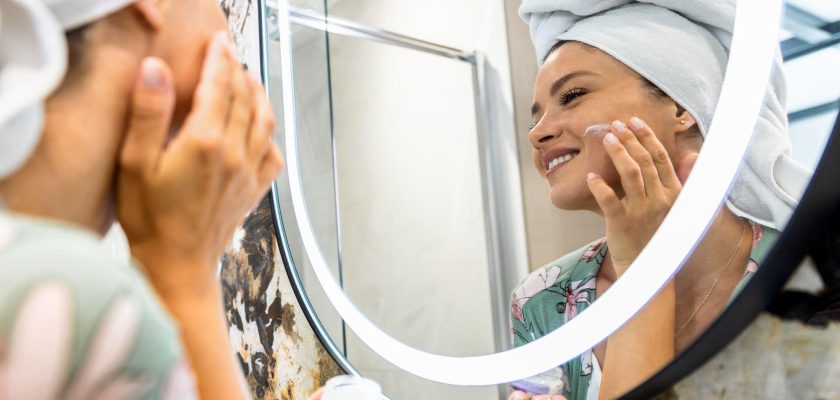Creating an effective daily skincare routine is fundamental to achieving and maintaining healthy, radiant skin throughout your lifetime. A well-structured routine not only addresses current skin concerns but also prevents future problems, making it one of the most important investments you can make in your overall appearance and confidence.
Understanding Your Skin Type and Concerns
Before building any skincare routine, it’s essential to understand your unique skin characteristics. Skin types generally fall into five categories: normal, dry, oily, combination, and sensitive. Each type has specific needs and responds differently to various ingredients and treatments.
Normal skin maintains good balance between oil production and moisture retention, requiring gentle maintenance rather than corrective treatments. Dry skin lacks sufficient sebum production and struggles to retain moisture, needing rich, hydrating formulations. Oily skin produces excess sebum, often leading to enlarged pores and breakouts, requiring products that balance oil production without over-drying.
Combination skin presents challenges with different areas exhibiting different characteristics, typically with an oily T-zone and drier cheeks. Sensitive skin reacts easily to ingredients and environmental factors, requiring gentle, fragrance-free formulations with minimal ingredients.
Beyond skin type, consider specific concerns such as acne, hyperpigmentation, fine lines, or loss of firmness. Understanding both your skin type and primary concerns allows you to select products that address your needs without causing irritation or exacerbating existing problems.
The Foundation: Cleansing and Toning
Proper cleansing forms the foundation of every effective skincare routine. Morning cleansing removes overnight buildup of natural oils and any residual products from your evening routine. Evening cleansing is crucial for removing makeup, sunscreen, pollutants, and daily grime that accumulate on the skin’s surface.
Double cleansing has gained popularity for its thorough approach to removing stubborn makeup and sunscreen. This method involves using an oil-based cleanser first to dissolve makeup and sunscreen, followed by a water-based cleanser to remove remaining impurities and excess oil.
Choose cleansers appropriate for your skin type. Gel cleansers work well for oily skin, while cream or milk cleansers suit dry or sensitive skin. Avoid harsh scrubs or cleansers with high concentrations of strong actives, as these can disrupt the skin barrier and cause irritation.
Toning has evolved from harsh, alcohol-based astringents to gentle, hydrating formulas that prepare skin for subsequent products. Modern toners can provide additional hydration, deliver active ingredients, or help balance skin pH after cleansing.

Photo by Cherrydeck on Unsplash
Essential Steps: Treatment and Protection
Treatment products containing active ingredients address specific skin concerns and form the core of your skincare routine. These products work best when applied to clean skin, allowing for maximum absorption and efficacy.
Serums and treatments should be applied in order of consistency, from thinnest to thickest. Water-based serums containing ingredients like vitamin C, niacinamide, or hyaluronic acid should be applied first, followed by oil-based treatments or heavier formulations.
Morning routines should focus on protection and hydration. Antioxidant serums help protect against environmental damage throughout the day, while moisturizers maintain skin hydration and comfort. The most critical step in any morning routine is broad-spectrum sunscreen application, providing essential protection against UV damage that causes premature aging.
Evening routines allow for repair and regeneration. This is the ideal time to apply active ingredients that might increase photosensitivity, such as retinoids or alpha hydroxy acids. These ingredients work while you sleep, promoting cell turnover and addressing various skin concerns.
Advanced Ingredients and Their Benefits
Understanding key skincare ingredients helps you make informed decisions about product selection. Vitamin C provides antioxidant protection and brightening benefits, making it ideal for morning use. Retinoids stimulate cell turnover and collagen production, offering comprehensive anti-aging benefits when used in evening routines.
Hyaluronic acid attracts and retains moisture, providing plumping effects and improving skin texture. Niacinamide regulates oil production, reduces inflammation, and helps minimize the appearance of pores. Alpha and beta hydroxy acids provide gentle exfoliation, improving skin texture and addressing concerns like acne and hyperpigmentation.
Peptides support collagen production and skin repair, offering anti-aging benefits with minimal irritation. Ceramides help strengthen the skin barrier, making them particularly beneficial for dry or sensitive skin types.
When incorporating new active ingredients, start slowly and monitor your skin’s response. Some ingredients should not be used together, while others work synergistically to enhance overall results.

Photo by Kalos Skincare on Unsplash
Professional Guidance and Product Selection
While basic skincare routines can be self-directed, professional guidance can significantly enhance results and prevent common mistakes. Skincare professionals can assess your skin’s specific needs, recommend appropriate products, and help you avoid potentially harmful ingredient combinations.
Professional consultations are particularly valuable when dealing with persistent skin concerns, introducing new active ingredients, or experiencing adverse reactions to products. A trained professional can adjust your routine based on seasonal changes, life stage transitions, or evolving skin needs.
Quality products make a significant difference in routine effectiveness. Professional-grade formulations often contain higher concentrations of active ingredients and undergo more rigorous testing than consumer products. Investing in a well-curated skincare collection from reputable sources ensures you’re using products that deliver promised results.
Consistency and Patience
Consistency is perhaps the most important factor in skincare routine success. Most skincare ingredients require several weeks of regular use before showing visible improvements. Dramatic results rarely occur overnight, and frequent product switching can irritate skin and prevent you from seeing true product effectiveness.
Maintain realistic expectations and understand that skincare is a long-term commitment. Some improvements, like increased hydration, may be noticeable within days, while others, like reduced fine lines or improved firmness, may take several months to become apparent.
Keep a skincare journal to track product usage, skin changes, and any reactions. This information helps you identify which products work best for your skin and can be valuable when consulting with skincare professionals.
Adapting Your Routine
Effective skincare routines evolve with your skin’s changing needs. Factors like age, hormones, climate, stress levels, and lifestyle changes all influence skin behavior and may require routine adjustments.
Seasonal changes often necessitate routine modifications. Winter weather may require richer moisturizers and more frequent hydrating treatments, while summer routines might emphasize lighter formulations and increased sun protection.
Pay attention to your skin’s signals and be willing to adjust your routine accordingly. If products that once worked well no longer seem effective, or if you develop new concerns, it may be time to reassess and modify your approach.
Building an effective daily skincare routine requires understanding your skin’s unique needs, selecting appropriate products, and maintaining consistency over time. With patience and proper guidance, a well-structured routine becomes a rewarding investment in your skin’s health and appearance for years to come.
